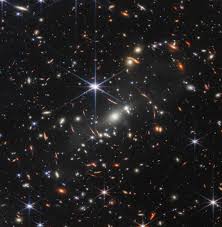Understanding Space Waves: Recent Discoveries and Implications

The Importance of Space Waves
Space waves, a term that encompasses a variety of phenomena occurring in the universe, are becoming increasingly important in astrophysics and cosmology. These waves, which include gravitational waves and electromagnetic waves, offer crucial insights into the mechanics of the cosmos. As scientists continue to study these waves, they unveil mysteries about the creation of the universe and the behaviour of celestial bodies, thus enhancing our understanding of the fabric of space-time.
Recent Discoveries in Space Waves
In October 2023, astronomers at the European Southern Observatory (ESO) made headlines with the detection of prolonged space wave activity in the space surrounding a distant pulsar. This pulsar, known as PSR J1341-6220, emits regular radio waves, but the recent observations showed that the surrounding electromagnetic waves were interacting in unprecedented ways, hinting at unknown physical processes.
Additionally, the detection of gravitational waves from two colliding black holes by the LIGO and Virgo collaborations has opened new avenues for research. This particular event occurred in late September 2023, and the data revealed not only the masses of the black holes but also increased our understanding of how black holes coalesce and the energy produced in such cataclysmic events.
Implications for the Future of Astronomy
The study of space waves is paramount for the advancement of astronomical science. These investigations can lead to significant breakthroughs in both theoretical and practical frameworks. For instance, they help refine models of the universe’s history, contribute to the understanding of dark matter and dark energy, and can even inform the development of technologies for communication in space.
Moreover, as the detection methods of both electromagnetic and gravitational waves improve, it is likely that we will gain access to a wealth of new data. Future missions, such as the upcoming Laser Interferometer Space Antenna (LISA), set to launch in the late 2020s, aim to broaden our understanding of space waves, particularly among phenomena that are currently challenging to observe.
Conclusion
The exploration of space waves is carving a new path in astronomical research and cosmology. As scientists continue to make exciting discoveries, the implications of these findings extend far beyond theoretical models—they pave the way for technological advancements and provide a deeper understanding of our universe’s mysteries. With ongoing research and missions on the horizon, the potential for what we can learn about space waves continues to grow, holding promise for both current and future generations in the field of astronomy.









